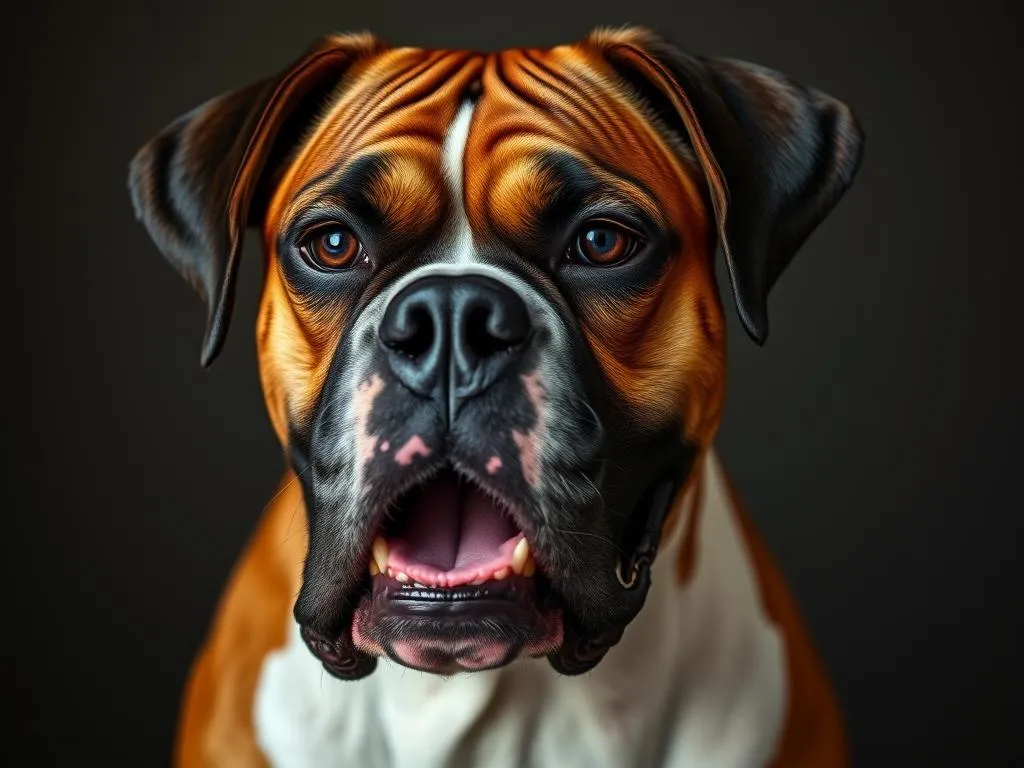
Boxer dogs are a beloved breed known for their playful nature, loyalty, and striking appearance. With their muscular build and distinctive square jaws, they have captured the hearts of many dog owners. However, one question that often arises among potential and current Boxer owners is: do Boxer dogs drool? Understanding drooling in dogs is essential for responsible pet ownership, so let’s dive into this topic and explore the factors that influence drooling in Boxer dogs.
Understanding Drooling in Dogs
What is Drooling?
Drooling, or the unintentional release of saliva from the mouth, is a common behavior in many dog breeds. While some dogs may have a slight tendency to drool, others may experience excessive drooling, which can be concerning for owners. It’s important to distinguish between normal drooling, which can occur in response to food or excitement, and excessive drooling, which may indicate underlying health issues.
Reasons Why Dogs Drool
There are several reasons why dogs may drool, including:
-
Physiological Reasons: Dogs often drool in anticipation of food or treats. The sight or smell of their favorite meal can trigger saliva production as a natural digestive response.
-
Emotional Triggers: Dogs may also drool when they are excited, anxious, or stressed. For instance, a Boxer might drool when they see their owner preparing for a walk or during a thunderstorm.
-
Health-Related Causes: Excessive drooling can be a sign of dental problems, such as gum disease or tooth decay. Additionally, illnesses like nausea or infections can lead to increased saliva production.
Boxer Dogs: A Brief Overview
Characteristics of Boxer Dogs
Boxers are medium to large-sized dogs with a strong, athletic build. They typically weigh between 50 to 80 pounds and stand about 21 to 25 inches tall at the shoulder. Their short coat is smooth and comes in various colors, including fawn and brindle, often with white markings. Boxers are known for their friendly, energetic, and playful temperament, making them excellent family pets.
Common Health Issues in Boxers
Like all breeds, Boxers are prone to certain health issues. Some common concerns include:
- Bloat: A life-threatening condition where the stomach fills with gas and twists.
- Heart Problems: Boxers are at risk for cardiomyopathy and other heart diseases.
- Hip Dysplasia: A genetic condition that affects joint health.
These health issues can sometimes contribute to drooling. For example, a Boxer suffering from a dental problem may drool more than usual, highlighting the importance of regular veterinary check-ups.
Do Boxer Dogs Typically Drool?
General Drooling Patterns in Boxers
When considering whether Boxer dogs drool, it’s essential to understand their general drooling patterns. While Boxers may drool more than some breeds, they are not typically known for excessive drooling. Their drooling tendencies can vary based on factors such as age, excitement levels, and health status.
Comparison with Other Breeds
Compared to popular dog breeds like St. Bernards or Bloodhounds, which are notorious for their drooling, Boxers generally have a moderate drooling tendency. Breeds known for excessive drooling often have loose lips or long facial structures that promote saliva escape, while Boxers have a more defined jawline, which helps contain saliva.
Factors Influencing Drooling in Boxer Dogs
Age and Development
Drooling in Boxers can change as they mature. Puppies might drool more due to teething, while adult Boxers may drool less unless they are excited or anxious. As dogs age, health issues can also arise, potentially increasing drooling.
Environmental Factors
Environmental changes can also influence drooling. For instance, hot weather may lead to increased salivation as dogs pant to cool down. Additionally, new environments or situations—like moving to a new home or meeting new people—can trigger anxiety-induced drooling.
Dietary Influences
What a Boxer eats plays a significant role in their drooling habits. Certain foods or treats can enhance salivation. For example, soft or wet foods may be more likely to provoke drooling than dry kibble. Additionally, introducing new treats or snacks can cause temporary changes in drooling patterns.
Managing Drooling in Boxer Dogs
When is Drooling a Concern?
While some drooling is normal, excessive drooling can be a cause for concern. Signs that should prompt a visit to the veterinarian include:
- Sudden changes in drooling patterns
- Accompanying symptoms like vomiting, lethargy, or difficulty eating
- Persistent drooling beyond typical triggers
Tips for Reducing Excessive Drooling
If you find that your Boxer is drooling excessively, there are steps you can take to manage the situation:
-
Dietary Adjustments: Opt for dry kibble instead of wet food to minimize drooling. If treats are a factor, consider limiting them or switching to less moist options.
-
Training Techniques: If excitement-induced drooling is an issue, training your Boxer to remain calm in stimulating situations can help. Teaching commands like “sit” or “stay” can redirect focus away from the source of excitement.
-
Regular Dental Care: Maintaining good dental hygiene is crucial for Boxers. Regular brushing and veterinary dental check-ups can prevent dental problems that lead to increased drooling.
Personal Experiences and Anecdotes
Owner Testimonials
Many Boxer owners have shared their experiences regarding drooling. Some report that their Boxers drool mainly during mealtime or when they see their favorite toy. Others have found that their dogs drool more when they are anxious, such as during thunderstorms or fireworks.
One owner mentioned, “My Boxer, Max, drools a little when he gets excited about going for a walk. It’s not excessive, but he definitely leaves a small puddle on the floor!” This anecdote highlights that some drooling is a normal part of a Boxer’s behavior.
Expert Insights
Veterinarians and dog trainers often reassure Boxer owners that some drooling is typical, especially in response to food or excitement. They emphasize that while drooling can be a normal behavior, it’s essential to monitor for signs of health issues.
Common myths about drooling include the belief that all drooling is a sign of illness. In truth, many factors contribute to drooling, and understanding these can help owners manage their pets better.
Conclusion
In conclusion, while Boxer dogs do drool, their drooling tendencies are generally moderate compared to other breeds. Understanding the reasons behind drooling—from physiological responses to emotional triggers—can help owners manage this behavior more effectively. Regular veterinary care and attention to dietary and environmental factors can minimize excessive drooling and ensure your Boxer remains healthy and happy.
If you ever find yourself concerned about your Boxer’s drooling habits, remember that some drooling is a normal part of their behavior, and it’s always wise to consult with a veterinarian when in doubt. Responsible pet ownership includes being attuned to your dog’s needs, and understanding drooling is just one aspect of caring for your beloved Boxer.









